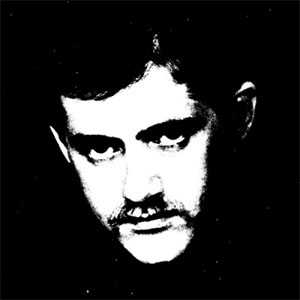Patrick Cowley School Daze
Outside certain circles of disco aficiandos, dance-music history buffs, and curious electronic-music connoisseurs, San Francisco […]

Outside certain circles of disco aficiandos, dance-music history buffs, and curious electronic-music connoisseurs, San Francisco producer Patrick Cowley may not be celebrated as the electronic-music pioneer he undoubedtly was. Though he’s perhaps best known for his involvement in disco queen Sylvester’s biggesthits, Cowley is also credited with first developing the hi-NRG sound that defined San Francisco’s gay-disco scene of the late ’70s and early ’80s. That scene was eventually ravaged by the AIDS epidemic, of which Cowley sadly was an early victim, passing away in 1982 before the disease even had a proper name. School Daze collects 11 of Cowley’s tracks retrieved from forgotten reels in the storage space of Fox Studios—a prominent gay-porn studio of the time—resurrecting productions that might have otherwise been lost forever, and ultimately demonstrating a depth to the visionary producer’s craft that may have gone undocumented if these recordings hadn’t resurfaced.
Besides “Zygote,” School Daze‘s light, opening space-disco odyssey, there is little to be heard on this reissue that directly resembles Patrick Cowley’s supercharged signature sound. Rather, the album’s other 10 tracks see the late producer wielding his penchant for cosmic synthwork as a means to explore a number of unclassifiable hybrids, more often veering into electronic abstraction than anything that could be called dance music. Early on, “Mocking Dreambird” takes a star-kissed jaunt through sparkling arpeggiators with a tweaked lead and a slightly bopping drum-machine rhythm pointing the way. “Nightcrawler” wraps what initially appears to be a harrowing bassline within a blanket of sublime atmospheres and analog melodies that barely seem to acknowledge that the other elements are even there (the tune’s closing minute even adds a nice, if unexpected, rhythmic component as well). Cowley’s efforts included in this collection are not “songs” in the traditional sense—there are no verses, choruses, etc.—but rather self-sustaining explorations upon sonic themes. Throughout School Daze, Cowley often relies on two or three looping elements to serve as the base of his productions, and then builds on top of them with an almost stream-of-consciousness approach to stacking astral melodies and quirky synth FX. The results are abstract but still playful, and somewhat simple in their compositional makeup. Still, the tracks are not lacking or monotonous, even when cuts like the majestically cosmic “Seven Sacred Pools” or the darkly space-aged “Primordial Landscape” reach well beyond the 10-minute mark. One of the album’s most charming—and perfectly titled—efforts, “Journey Home,” remains worthwhile for a full 14 minutes, using the track’s didgeridoo-like bass synth and a drum machine’s steady chug as the bed for a constantly morphing cluster of druggy synth melodies to rest atop.
Even considering the faint layer of tape-hiss which covers School Daze, this collection sounds remarkably relevant in the current electronic-music landscape. Perhaps it is a sign of how responsible Cowley is for the building blocks of various genres that one can almost hear the echoes of Emeralds’ Does It Look Like I’m Here or even Actress’ R.I.P. in certain sections of the album. In the end, School Daze proves that while much of Cowley’s more dancefloor-oriented work may sound more obviously time-stamped, he was truly a forward-thinking artist and a producer who was well ahead of his time. The fact that two small labels spent years seeking out the tapes of Cowley’s gay-porn soundtracks—and then decided to press them onto vinyl—is really just the icing on the cake.

